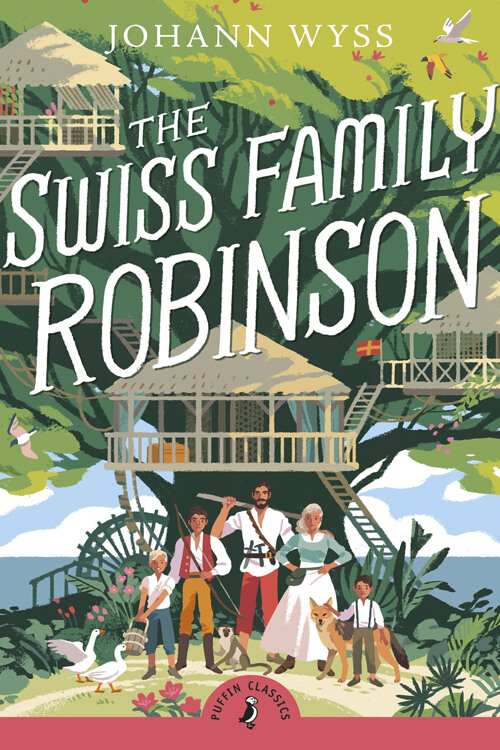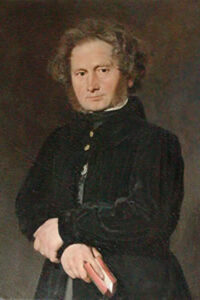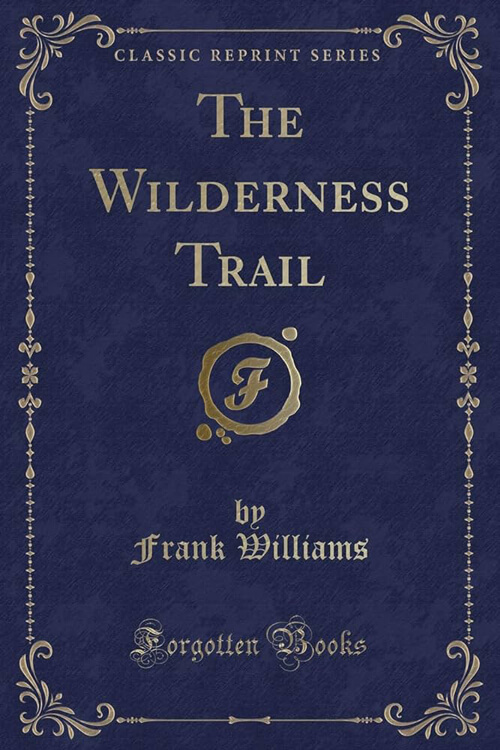
Swiss Family Robinson
For many days, we had been tempest-tossed. Six times had the darkness closed over a wild and terrific scene, and returning light as often brought but renewed distress, for the raging storm increased in fury until on the seventh day all hope was lost.
We were driven completely out of our course; no conjecture could be formed as to our whereabouts. The crew had lost heart and were utterly exhausted by incessant labor. The riven masts had gone by the board, leaks had been sprung in every direction, and the water, which rushed in, gained upon us rapidly.
Instead of reckless oaths, the seamen now uttered frantic cries to God for mercy, mingled with strange and often ludicrous vows, to be performed should deliverance be granted. Every man on board alternately commended his soul to his Creator and strove to think himself of some means of saving his life.
My heart sank as I looked around at my family amid these horrors. Our four young sons were overpowered by terror. `Dear children,’ said I, `if the Lord will, He can save us even from this fearful peril; if not, let us calmly yield our lives into His hand, and think of the joy and blessedness of finding ourselves forever and ever united in that happy home above. Even death is not too bitter when it does not separate those who love one another.’
At these words my weeping wife looked bravely up, and, as the boys clustered around her, she began to cheer and encourage them with calm and loving words. I rejoiced to see her fortitude, though my heart was ready to break as I gazed at my dear ones.
We knelt together, one after another praying with deep earnestness and emotion. Fritz, in particular, sought help and deliverance for his dear parents and brothers, as though quite forgetting himself. Our hearts were soothed by the never-failing comfort of child-like confiding prayer, and the horrors of our situation seemed less overwhelming. `Ah,’ thought I, `the Lord will hear our prayer! He will help us.’
Amid the roar of the thundering waves, I suddenly heard the cry of `Land! land!’, while at the same instant, the ship struck with a frightful shock, which threw everyone to the deck, and seemed to threaten her immediate destruction.
Read or download Book
Johann David Wyss
Johann David Wyss (28 May 1743 – 11 January 1818) was a Swiss author, best remembered for his book The Swiss Family Robinson (Der Schweizerische Robinson) (1812).
Biography.
He was born and died in Bern. It is said that he was inspired by Daniel Defoe’s Robinson Crusoe, but wanted to write a story from which his children would learn, as the father in the story taught important lessons to his children. The Swiss Family Robinson was first published in German in 1812, then translated into English two years later. It has since become one of the most popular books of all time. The book was edited by his son, Johann Rudolf Wyss, a scholar known for writing the Swiss national anthem, Rufst du, mein Vaterland. Another of Wyss’s sons, Johann Emmanuel Wyss, illustrated the book. Johann David Wyss died in 1818 at the age of 74. He lived longer than his son Johann Rudolf, who would die twelve years later at the age of 48.
Wyss has been described as an author whose style was “firmly Christian and moral in tone”. There are also many underlying tones of Christianity throughout the book, particularly about many of the characters and their moral philosophies.
Influence
Jules Verne reportedly declared that The Swiss Family Robinson was one of his favorite books,[citation needed] so much so that he was inspired to write a sequel, The Castaways of the Flag (1900), nearly a century after Wyss’s death.






